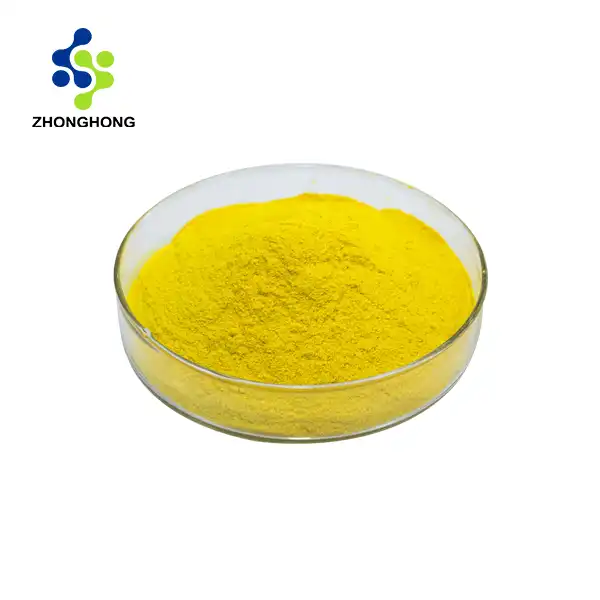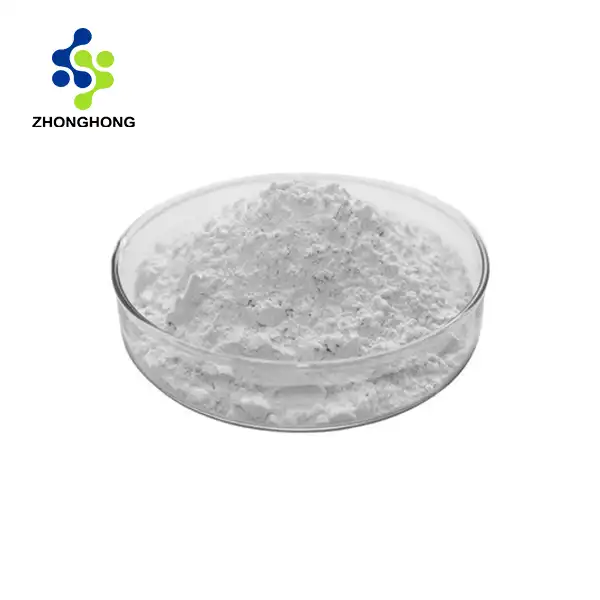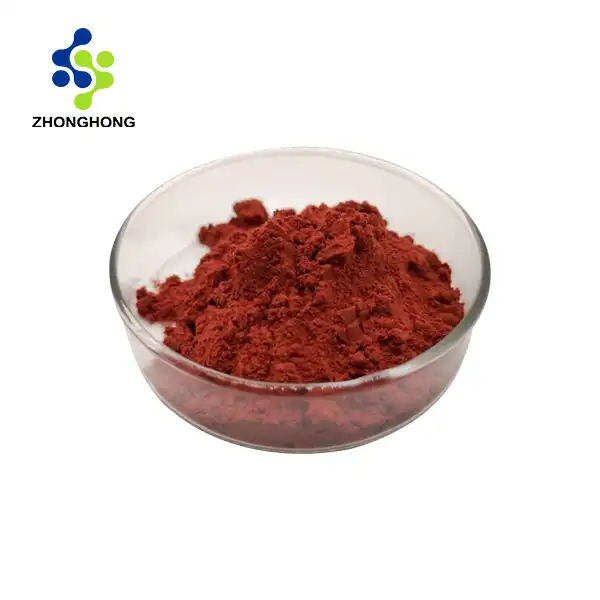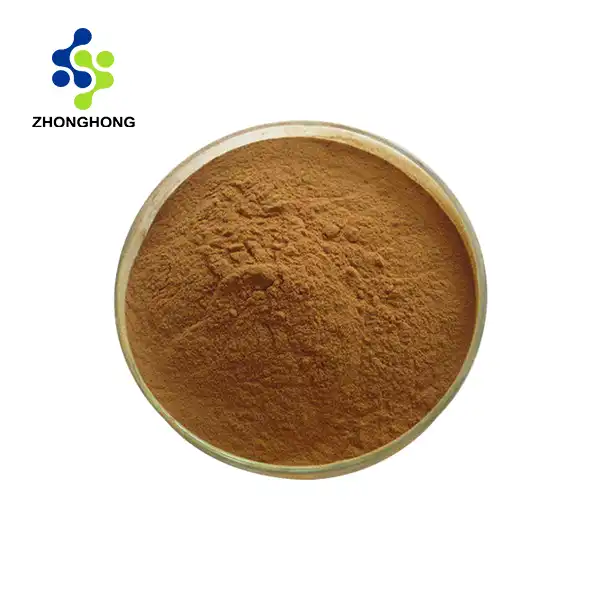Top 5 Reasons to Add HMBCA to Your Fitness Routine
2024-11-19 21:13:13
Are you looking to elevate your fitness game? Consider incorporating HMBCA into your regimen. HMBCA, or β-hydroxy β-methylbutyrate calcium, is a metabolite of the essential amino acid leucine. This potent compound has been gaining traction in the fitness world for its potential to enhance muscle recovery, boost endurance, and support overall athletic performance. Let's delve into the top five reasons why HMBCA might be the missing piece in your fitness puzzle.
How HMBCA Enhances Muscle Recovery?
Muscle recovery is crucial for any fitness enthusiast or athlete. HMBCA has shown promising results in accelerating this process. Here's how:
Reduced Muscle Breakdown
HMBCA acts as a shield against muscle catabolism, the breakdown of muscle tissue. By inhibiting proteolysis, HMBCA helps preserve lean muscle mass, especially during intense training periods or calorie-restricted diets. This preservation of muscle tissue is vital for maintaining strength and promoting overall physical performance.
Accelerated Muscle Repair
Beyond preventing muscle breakdown, HMBCA may also expedite muscle repair. It stimulates protein synthesis, the process by which cells build new proteins. This acceleration in protein synthesis can lead to faster recovery times between workouts, allowing for more frequent and intense training sessions.
Decreased Muscle Soreness
One of the most appreciated benefits of HMBCA is its potential to reduce delayed onset muscle soreness (DOMS). By mitigating muscle damage during exercise, HMBCA can help alleviate the discomfort typically experienced 24-48 hours post-workout. This reduction in soreness can lead to improved training consistency and quality.
Boosting Endurance with HMBCA Supplements
Endurance is a key component of fitness, regardless of your specific goals. HMBCA has shown potential in enhancing endurance capacity:
Improved Aerobic Performance
Studies have indicated that HMBCA supplementation may improve aerobic performance. It's believed to enhance mitochondrial biogenesis, the process by which cells increase mitochondrial mass. More mitochondria mean improved energy production, potentially leading to enhanced endurance during prolonged exercise.
Enhanced Fat Utilization
HMBCA may also influence the body's ability to utilize fat as an energy source. By promoting fat oxidation, HMBCA could help athletes and fitness enthusiasts maintain energy levels during extended periods of exercise, crucial for endurance activities like long-distance running or cycling.
HMBCA for Athletes: Is It Worth It?
The question of whether HMBCA is worth incorporating into an athlete's regimen is multifaceted. Let's examine some key considerations:
Potential Benefits for Different Athletic Profiles
HMBCA's effects may vary depending on the type of athlete and their specific goals. For strength athletes, the muscle preservation properties of HMBCA could be particularly beneficial during cutting phases. Endurance athletes might appreciate the potential improvements in aerobic performance and fat utilization. Team sport athletes could benefit from enhanced recovery between games and training sessions.
Dosage and Timing Considerations
The efficacy of HMBCA supplementation can depend on proper dosage and timing. Most studies have used doses ranging from 1.5 to 3 grams per day, often split into multiple doses. Timing can also play a role, with some research suggesting benefits from taking HMBCA before or after workouts.
Potential Side Effects and Precautions
While HMBCA is generally considered safe for most individuals, it's essential to be aware of potential side effects. Some users have reported gastrointestinal discomfort, particularly when starting supplementation. As with any supplement, it's crucial to consult with a healthcare professional before adding HMBCA to your routine, especially if you have pre-existing health conditions or are taking medications.
Cost-Benefit Analysis
When considering HMBCA supplementation, it's important to weigh the potential benefits against the cost. While HMBCA supplements can be more expensive than some other fitness supplements, many athletes find the investment worthwhile given the potential improvements in recovery and performance.
Combining HMBCA with Other Supplements
Some research has explored the potential synergistic effects of combining HMBCA with other supplements. For example, pairing HMBCA with creatine monohydrate has shown promising results in some studies, potentially enhancing the benefits of both supplements. However, more research is needed to fully understand these interactions.
Long-Term Effects and Sustainability
While short-term studies on HMBCA have shown promising results, more research is needed on the long-term effects of supplementation. Athletes considering HMBCA should think about how it fits into their overall, sustainable approach to training and nutrition.
Conclusion
In conclusion, HMBCA offers a range of potential benefits for athletes and fitness enthusiasts. From enhanced muscle recovery to improved endurance, this compound has piqued the interest of many in the sports and fitness community. However, as with any supplement, it's crucial to approach HMBCA use thoughtfully, considering individual needs, goals, and overall health status. If you want to get more information about this product, you can contact us at liaodaohai@gmail.com.
References
1.Wilson, J. M., et al. (2013). β-Hydroxy-β-methylbutyrate free acid reduces markers of exercise-induced muscle damage and improves recovery in resistance-trained men. British Journal of Nutrition, 110(3), 538-544.
2. Wilkinson, D. J., et al. (2013). Effects of leucine and its metabolite β‐hydroxy‐β‐methylbutyrate on human skeletal muscle protein metabolism. The Journal of Physiology, 591(11), 2911-2923.
3. Durkalec-Michalski, K., & Jeszka, J. (2016). The efficacy of a β-hydroxy-β-methylbutyrate supplementation on physical capacity, body composition and biochemical markers in elite rowers: a randomised, double-blind, placebo-controlled crossover study. Journal of the International Society of Sports Nutrition, 13(1), 1-11.
4. Knitter, A. E., et al. (2000). Effects of β-hydroxy-β-methylbutyrate on muscle damage after a prolonged run. Journal of Applied Physiology, 89(4), 1340-1344.
5. Lowery, R. P., et al. (2016). Interaction of beta-hydroxy-beta-methylbutyrate free acid and adenosine triphosphate on muscle mass, strength, and power in resistance trained individuals. The Journal of Strength & Conditioning Research, 30(7), 1843-1854.
6. Vukovich, M. D., & Dreifort, G. D. (2001). Effect of β-hydroxy β-methylbutyrate on the onset of blood lactate accumulation and V̇O2peak in endurance-trained cyclists. The Journal of Strength & Conditioning Research, 15(4), 491-497.
_1728976869676.webp)








